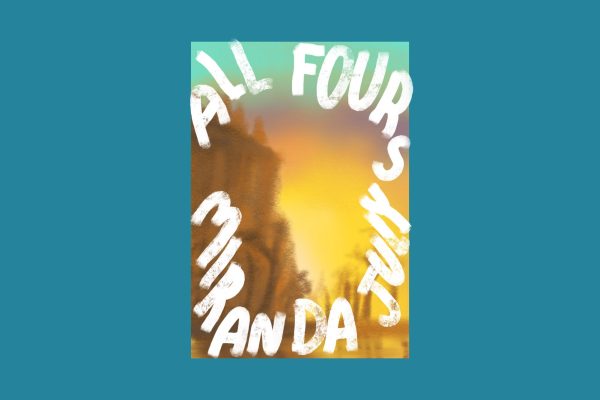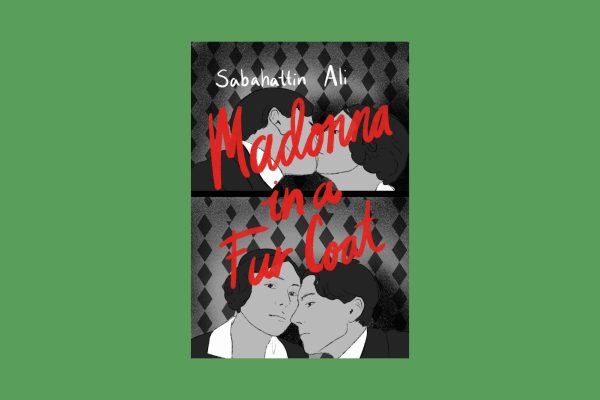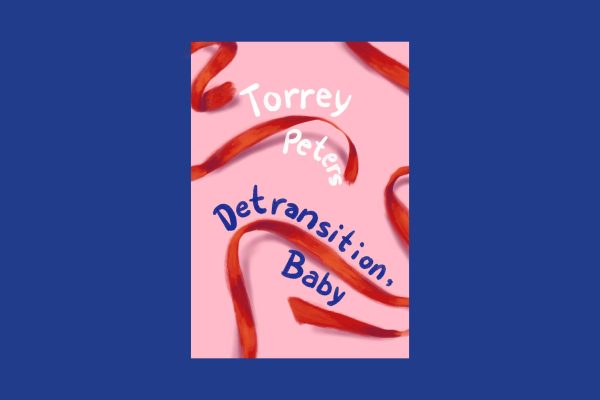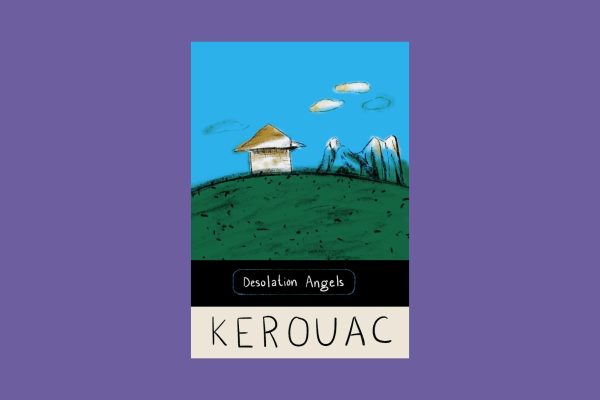
“All Fours” by Miranda July
Last summer, I was surrounded by books and bookish people for the entire season, and it felt like nobody could stop talking about Miranda July’s new novel. Eventually, I had FOMO, so I bought it too. One year later, I actually read it. Its popularity was for good reason — it’s rare to find a weird book that is also easy to read. Most strange novels take on an annoyingly contrived literary style, but not this one.
“All Fours” follows a somewhat-famous 45-year-old artist who lives in California with her husband and child. Right from the beginning, it’s clear that our unnamed narrator is a little unsure about her place in life, ready for an exciting change. She decides to take a three week, cross-country road trip to New York. Instead, she ends up driving only 30 minutes away and sleeps in a motel for the entire time. Once she returns home, she has somewhat of a midlife crisis, which is exacerbated when she finds out she’s going through perimenopause. The book explores finding freedom in your mid-40s, menopause, sexuality and the changing nature of family through the narrator’s funny and odd lamentations about life.
— Alexa Donovan, Arts Editor

“Madonna in a Fur Coat” by Sabahattin Ali, translated by Maureen Freely and Alexander Dawe
In “Madonna in a Fur Coat” by Sabahattin Ali, the main protagonist, Raif, becomes obsessed with a portrait of the Madonna, or the Virgin Mary. This portrait serves as a connection between him and the portrait’s painter, whom he tragically falls in love with.
As a young man who moved from Turkey to Berlin in the 1920s, Raif excitedly explores his new surroundings. He goes to the cabaret and galleries, where he meets Maria, the artist who created the Madonna portrait. Raif’s shy nature juxtaposes with Maria’s strong confidence and independence, challenging his hopeless romanticism in love and life. The tension and passion of their relationship reinforced my belief in soulmates, even if they aren’t always the ones we end up with. This novel left my heart aching and wanting to reread it in hopes of finding a less devastating ending.
— Siobhàn Minerva, Deputy Arts Editor

“Detransition, Baby” by Torrey Peters
What does it mean to reimagine the family unit as unabashedly queer? Torrey Peters, through whip-smart fiction packed to the brim with ironic, plainspoken commentaries about what it means to be a transgender and attempts to answer the question through an unromanticized lens.
This story of parenthood — tangled up with old romance and histories of gender and race — depicts a trans-realist family unit, which is defined by a family that has one or more trans members. The family is made up of Ames — previously Amy, who’s detransitioned — his former partner Reese, a transgender woman longing for motherhood and Ames’ current cisgender, heterosexual wife, Katrina. Katrina doesn’t know about Ames’ trans past, and Reese refuses to let it go. It’s an utterly impossible plot to sum up with just a few words, just as it is impossible to put down.
— Levi Langley, Deputy Sports Editor

“Desolation Angels” by Jack Kerouac
Many claim to have read the American classic “On the Road” by the Beat Generation’s sweetheart, Jack Kerouac. But, as someone who weightily bears the gold medal of starting, finishing and loving “On the Road,” I write here to recommend “Desolation Angels,” a semi-autobiographical novel which chronicles the years of writing “On the Road” and the people who inspired its characters.
We join Kerouac in desolation at the top of a mountain with nothing but canned beans and coffee. His blubbering rants about Buddhism echo through the canyon. When summer ends, he returns to San Francisco and begins to hear the intellectual howlings of the Desolation Angels, a loving nickname for his rambling friends — among them is Allen Ginsberg, under the pseudonym of Irwin. Kerouac, alongside his readers, tries to maintain clarity amid roaring jazz clubs, wild parties and barroom respites in California. I followed Kerouac from California to Mexico City to New York to Tunisia as he chased and began writing his first great novel.
— Grace McDonald, Contributing Writer
Contact the Arts desk at [email protected].





















































































































































